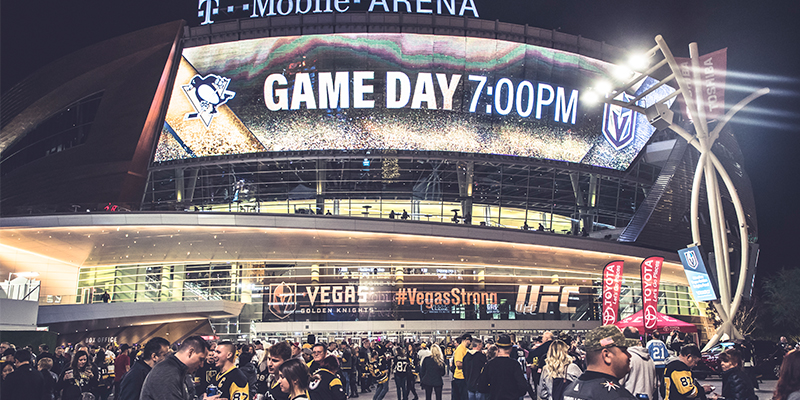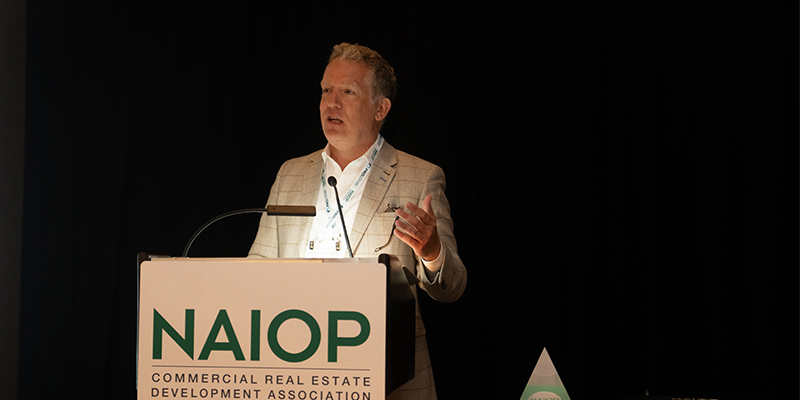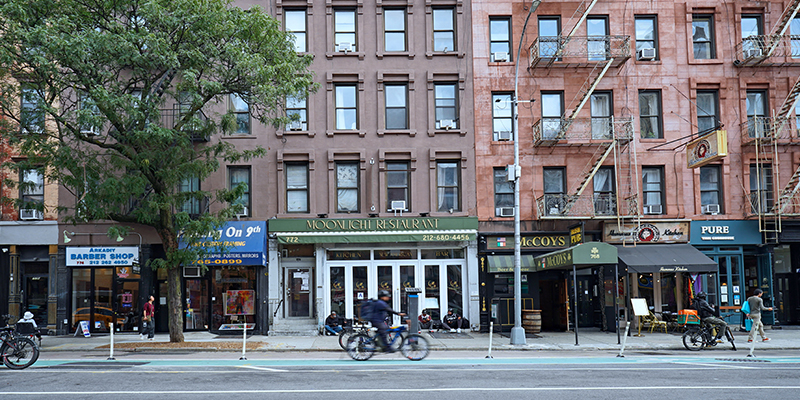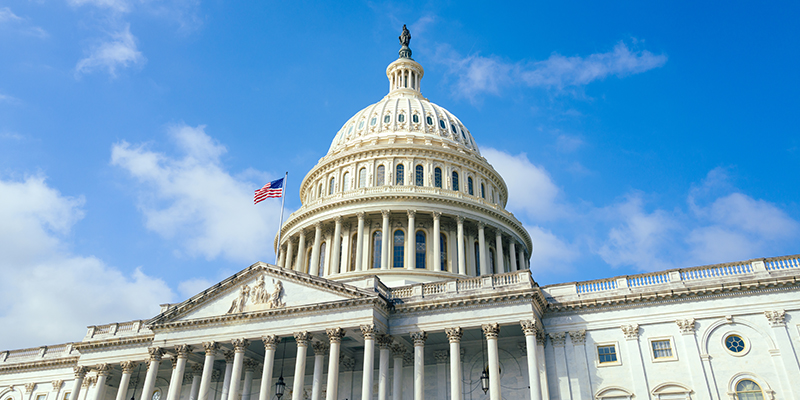The arrival of at least six major professional sports franchises to the Las Vegas Valley over the last seven years – and high-profile competitions like the Super Bowl, WNBA Finals, Stanley Cup Finals, National Finals Rodeo and NBA All-Star Game – has transformed Las Vegas into the entertainment and sports capital of the world.
At CRE.Converge this week in Las Vegas, attendees had the opportunity to learn more about how the city’s sporting events have allowed the city to create unique experiences that transcend the event itself, hearing from a panel of sports executives and taking an exclusive behind-the-scenes tour of the Las Vegas Ballpark and City National Arena, the practice facility of the NHL Vegas Golden Knights.
The Las Vegas Ballpark, home to the Las Vegas Aviators, the Triple-A affiliate of the Oakland A’s, is a centerpiece of the master-planned Summerlin community conceived by the Howard Hughes Corporation (the company also owns Aviators), which opened in 2014. The upscale retail and dining destination includes three separate luxury multifamily residences, as well as office, public park and entertainment spaces.
The $110 million ballpark is a fan favorite – named winner of the 2019, 2021 and 2022 MiLB Triple-A Best Ballparks by Ballpark Digest. Have you ever seen a private plunge pool and lounge behind third base? The Las Vegas Ballpark boasts one. (So far, 24 home-run balls have dropped into the pool.)
Following lunch on the club level, tour attendees heard from major players in the Vegas sports scene: Michael Crome, senior vice president and chief financial officer, Las Vegas Raiders; Kerry Bubolz, president and chief operating officer, Vegas Golden Knights; and Larry Brown, director of business development for the Las Vegas Aviators and former 1983 Las Vegas Stars pitcher.
The executives shared the unique challenges and opportunities presented by the Vegas market. As an appealing hospitality hub, fans of visiting teams are happy to come to Vegas to cheer on their team. Crome and Bubolz said there’s always a focus on making sure there are hometown fans in the stands, too. All panelists agreed that their priorities are creating a positive fan experience, ensuring affordable tickets are available, and building community pride.
Adjacent to the ballpark is City National Arena, the Vegas Golden Knights training facility. On a tour led by none other than Bubolz himself, the team president shared the organization’s goal of growing the sport in Nevada by building community ice rinks and investing in youth leagues that will eventually deliver the next generation of players and fans.
“We’ve been able to take that destination interest in Vegas and through hockey, bring in even more people,” Bubolz said. It seems to be working – they’re over capacity at every game. When the team won the Stanley Cup in 2023, the small on-site gift shop saw about $10 million in revenue.
But day-to-day, the facility is open to the public. Kids can come in and skate on the same ice and sit on the same bench as NHL champions. The Golden Knights were also one of the first NHL teams to make practices completely free and open to the public.
Another game-changer for the city was Allegiant Stadium. Before the stadium was completed in 2020 (a public-private partnership), there was no facility that size in Las Vegas. Now major artists (Taylor Swift, for one) that never would have made a tour stop before are adding the city to their schedule, generating significant economic impact.
“We’ve surveyed our guests [at the stadium], and about 80% tell us they came to Las Vegas only for that specific event, concert or game,” Crome shared. Those are brand new visitors the stadium is attracting to the city, he pointed out.
“We used to be known as the gaming capital of the world,” said Brown. “There’s no competition now – we’re the sports capital of the world.”
This post is brought to you by JLL, the social media and conference blog sponsor of NAIOP’s CRE.Converge 2024. Learn more about JLL at www.us.jll.com or www.jll.ca.









